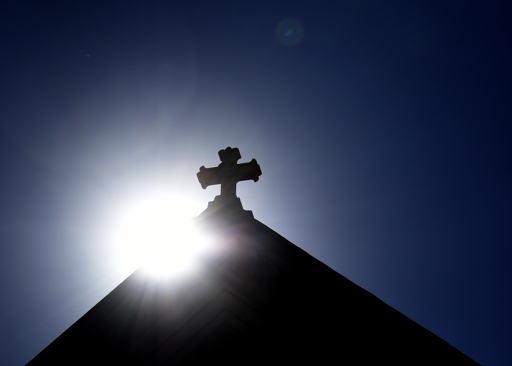The Catholic Church has issued a warning to its clergy in Washington state: Any priest who complies with a new law requiring the reporting of child abuse confessions to authorities will be excommunicated.
https://www.newsweek.com/catholic-church-excommunicate-priests-following-new-us-state-law-2069039



Aiding and abetting criminals is a crime.
How does receiving a confession aid or abet the perpetrator?
«Bless me father for I have sinned: I have a sex slave in my basement. I rape him every day because I cannot control myself."
You don’t report that and you’re siding the continue commission of a crime.
Overall you’re right about the first amendment, but it feels like that separating only goes one way, and I’m tired of religion getting the better side of it.
It’s also so selective. I can’t kill a live chicken to practice Santeria but it’s fine for orthodox jews on Kaporos? We can’t compel a priest to report a murder or testify but they can tell their constituents to vote for the candidate that bans women’s healthcare?
You’re right, having done some light wikipedia-ing, emotional support such that a priest provides would make him an accessory.
Psychiatrists are legally obligated to report knowledge of certain crimes that would otherwise be protected by confidentiality laws, I don’t see why priests should be any different.
Thank you, this was the comparison I was looking for and the standard I would hold for this. I agree with your assessment.
What if the priest doest’t provide emotional support
Then they won’t know about the crime to begin with. The very act of listening to the confession and advising spiritual penance provides emotional support.
That does not appear to be true, unless the crime is being planned or in progress.
But even if it somehow did, you’d effectively be demanding a priest self-incriminate by admitting to the contents of a confession.
It’s called “accessory after the fact”, and they wouldn’t be guilty of it if they report it, that’s the whole point of reporting it.
Imagine believing this given the current state of the criminal justice system
Psychiatrists don’t get arrested for reporting on patients when the law requires it, this is no different. You’re thinking of whistleblowers and functional regulation enforcement agency employees. Now, if the confessor in question is, like, the mayor or something, then yeah, Father’s fucked.
If a child says my dad touches me at night and you do nothing you belong in jail
Pretty much describing how we ended up with the Satanic Panic
There’s two sides to this coin. Getting children - particularly young children who don’t understand what they’re being asked - to confess and accuse people of crimes is trivially easy.
deleted by creator
It doesn’t, there’s just stupid people out there who find X so abhorrent that can’t possibly have a rational thought regarding it.
But you’ve been on Lemmy before, so I’m sure you know all about it.
Typical lemmy, finding X abhorrent*.
^*for child-rape values of X^
What the fuck are you talking about cunt?
yer mum
I wouldn’t know, I don’t have an X account
Yeah me either? Never had Twitter and I certainly won’t make a fucking x
Cool, break that down for us.
I was wrong, the priest is an accessory to the crime.